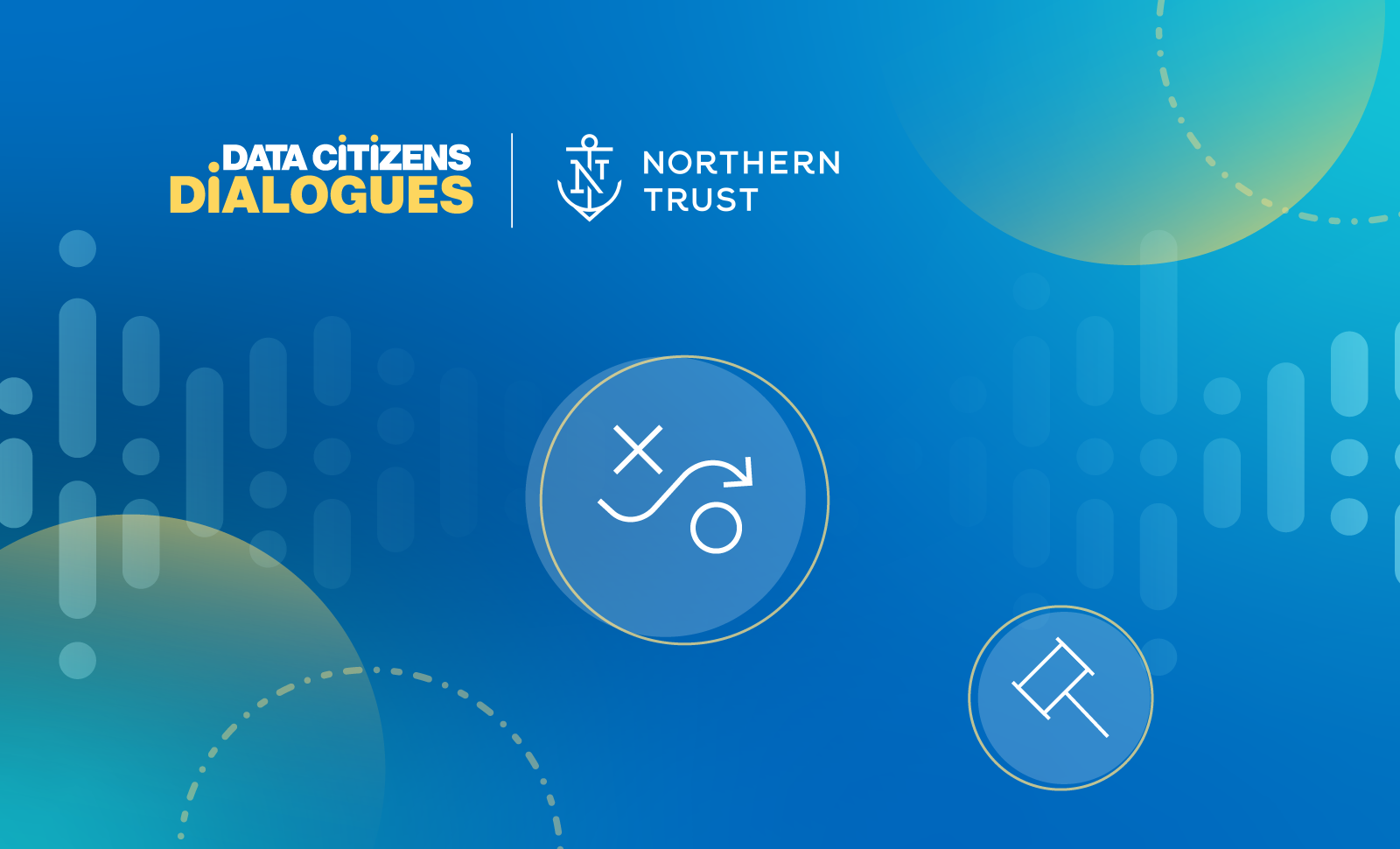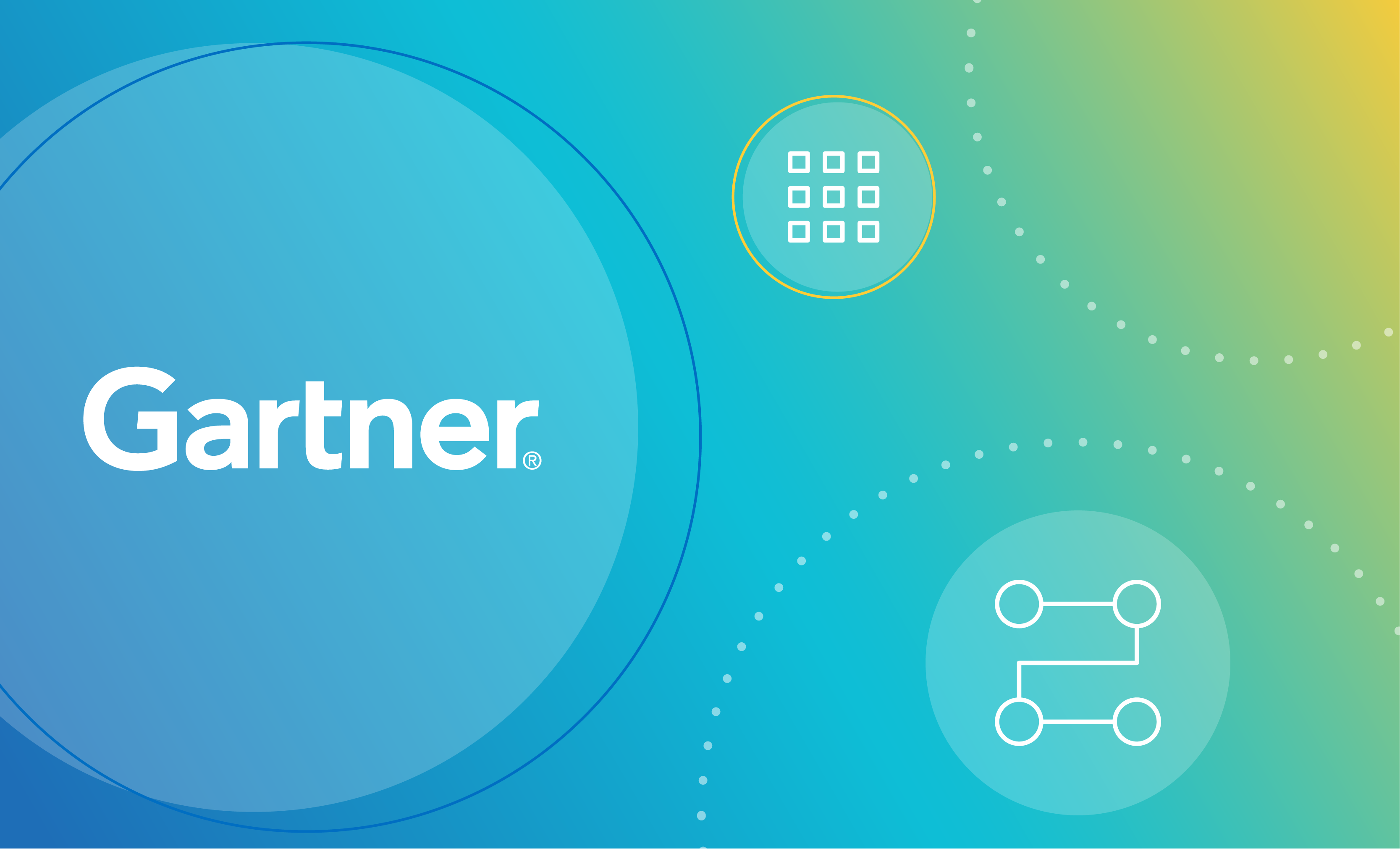A business glossary is a collection of data related terms described in clear language that everyone in an organization can understand. A business glossary ensures organizations speak the same language by clearing up ambiguity in business terminology.
Those definitions form part of a business ontology – helping organizations understand how different terms relate to one another.
For example, a ‘customer’ could be defined as a current or potential buyer of products or services from a ‘vendor.’
This definition is specific enough to capture the relationship between entities, but also sufficiently open to accommodate potential differences in interpretation.
In some cases, differences can be semantic. For example, a customer could also be called a buyer or purchaser, while a vendor can be referred to as a supplier or seller. In other cases, differences could be down to the entity in question – for example, a retail bank would see customers as natural persons, while a corporate bank would broadly see them as companies. Differences could also exist internally, depending on one’s perspective. A chief risk officer may view corporate customers as legal entities, while a marketing professional may view that same customer as a collection of individual persons.
Why is a business glossary important?
A business glossary is important because it helps an organization create a common business language, allowing people to better communicate and collaborate. When it comes to governing data, a business glossary serves as a foundational artifact; it ensures that data elements can be classified logically in a business context. Maintaining this business logic is crucial for the way organizations map out their data assets. It helps recognize relationships by identifying similarities between terms, potentially reconciling differences in interpretation, and promoting understanding of data in a business context.
A business glossary can also be a crucial tool for managing data policies. For example, by ascribing a level of security classification to each business term, organizations can set policies and manage access controls at a logical level and have those applied consistently across disparate physical data stores.
What is the difference between a business glossary and a data dictionary?
People often confuse the meanings of a business glossary and a data dictionary, but they are two distinct tools that work together to make an organization’s data more meaningful.
A business glossary is concerned with defining business terms from a logical perspective in a way that humans can understand. Organizations use a business glossary to:
- Create a shared language around data related terms
- Give visibility into how vocabulary may differ across departments
- Ensure agreement and consistency between business content and technical data
Data dictionaries, on the other hand, describe specific data elements in a way that databases can understand. Organizations use a data dictionary to:
- Provide consistency in data collection and use across tools
- Enforce the use of data standards
- Show the relationships between data assets
Expanding on the previous example of a ‘customer,’ a data dictionary would detail the specific data elements that relate to each ‘customer.’ For example, a corporate customer could be uniquely identified using a ‘legal entity identifier’ while a retail customer might be identified using a social security number (or other comparable identifier outside of the US). A data dictionary would not only capture those data elements but also describe how they are represented. For example, a legal entity identifier is represented as a twenty-digit alphanumeric code, while a social security number is represented as a nine-digit number.
Components of a good business glossary
It’s one thing to understand a business glossary at a high level, but now what does a business glossary really look like and what’s in there?
Content
A business glossary at its highest level should include the below four components and all should have relations to each other.
- Business terms and definitions – A list of data terms and their definitions. This may sound simple, but actually can become quite complex when different departments use the same terms to describe different concepts or different terms to describe the same concept. Having the terms clearly listed and accessible to all will facilitate communication and collaboration.
- Reference data assets and data models – Reference data is data used to categorize other data, so it’s crucial to have reference data tied to business terms to provide context on its meaning.
- Data governance policies – It is indispensable to have sufficient governance around a business glossary. This will ensure that assets in the business glossary meet organizational, industry, and regulatory standards.
- Classifications – This will add context around the types of data assets and value domains and their sensitivity.
Best-in-class features
An effective business glossary does not stand alone; data governance technology can help build a business glossary, maintain it and scale it for the enterprise. Key features of a business glossary include:
- Collaborative workflows – establish clear defined processes to facilitate collaboration and resolution of data inconsistencies
- Technical metadata – link assets to technical metadata for context on format and structure of data across systems
- Data lineage – map terms to show it relates to other data sources and assets
- Data catalog – connect terms to data assets so business users can easily access relevant data
- Automatic data classification – automate the process of adding context to new data with a proprietary algorithm that learns to identify data classes through machine learning
All in all, a business glossary helps organizations create a shared language so all employees can communicate and collaborate. Organizations should invest in a business glossary (or multiple glossaries) to create a common understanding around their data and make their data meaningful.
***
Frequently asked questions about a business glossary
What is a data governance business glossary?
A data governance business glossary is a collection of standardized terms and definitions used within an organization for data management.
What is the difference between a business term and a business glossary?
A business term refers to a specific concept, while a business glossary is a comprehensive collection of such terms and their definitions.
What is the scope of a business glossary?
A business glossary typically includes terms related to business processes, data elements, and their definitions, providing clarity and consistency.
How do you structure a business glossary?
Structure a business glossary by organizing terms alphabetically or categorically with clear definitions and usage guidelines for each term.
What does a business glossary help to achieve with data governance?
A comprehensive business glossary helps data governance by promoting consistency, clarity, and understanding of terms, ensuring effective data management.
What are the benefits of a business data glossary?
Benefits of a business data glossary include improved communication, decision-making, data quality and compliance with regulations.
What is a business glossary standard?
A business glossary standard outlines guidelines for creating, organizing and maintaining business glossaries to ensure consistency across organizations.
How do you implement a business glossary?
Implement a business glossary by establishing processes for term identification, definition, approval, and maintenance, involving relevant stakeholders.
Who is responsible for a business glossary?
Responsibility for a business glossary typically lies with data governance or stewardship teams, supported by business and IT stakeholders. In some cases, data owners may also play a role, particularly in terms of validating and approving definitions related to their specific data domains.
What is the difference between a data catalog, a data dictionary and a business glossary?
A data catalog provides metadata about datasets, a data dictionary defines technical data attributes, while a business glossary focuses on business terms.
Is a business glossary part of metadata management?
Yes, a business glossary is part of metadata management, providing essential context and understanding of business terms within an organization’s data ecosystem.




